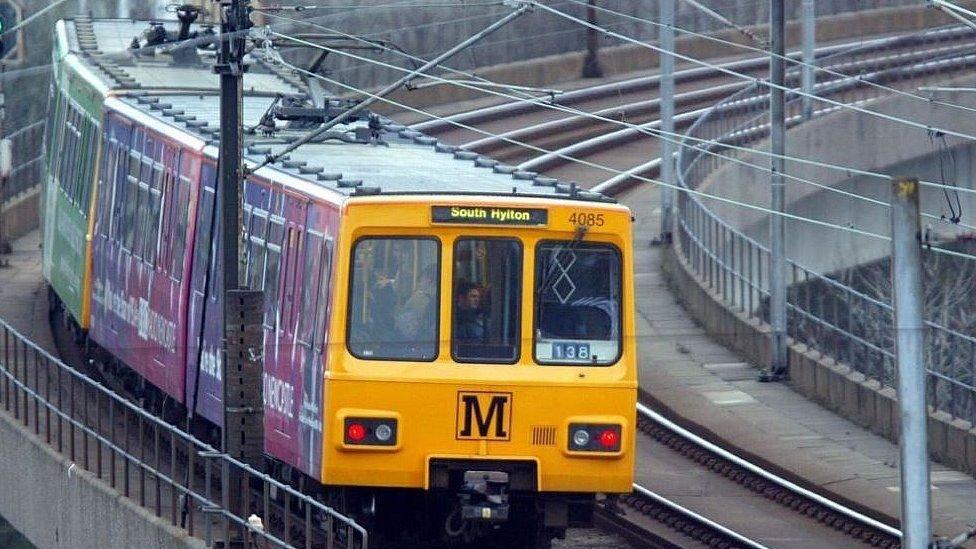New Metro trains 'will cope better with future heatwaves'
- Published
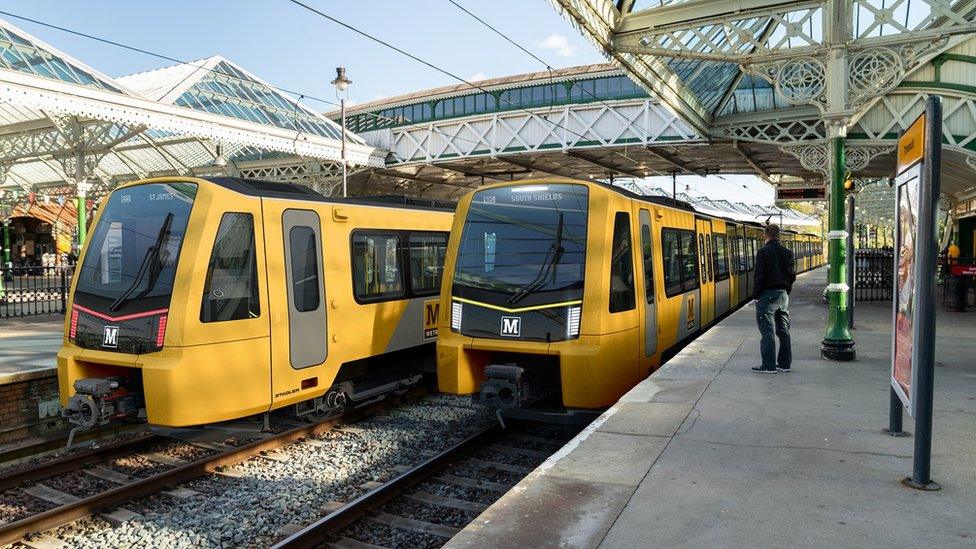
The new Metro trains come into service in 2023 and feature advance air conditioning
The Tyne and Wear Metro will be better able to cope with future heatwaves when its new £362m fleet arrives, its operator says.
Passengers were advised not to travel on Tuesday as the North East recorded temperatures of up to 37C.
It led to services being suspended due to overhead lines sagging in the heat.
The new trains come into service in 2023 and feature air-conditioning and an on-board battery, allowing them to keep moving when overhead lines fail.
Meanwhile, temperatures in the North East are set to return to those typically seen at this time of year from today.
Allow X content?
This article contains content provided by X. We ask for your permission before anything is loaded, as they may be using cookies and other technologies. You may want to read X’s cookie policy, external and privacy policy, external before accepting. To view this content choose ‘accept and continue’.
Metro's current ageing carriages have been in service for more than 40 years.
The new fleet is being built in Switzerland with the first of the new models due to arrive in the North East later this year.
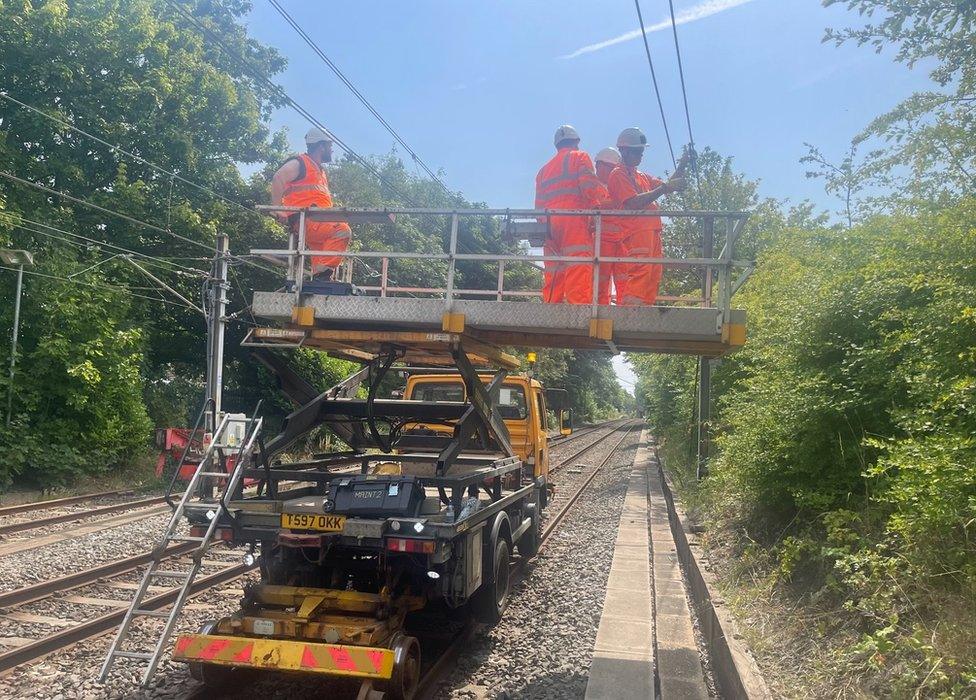
Metro staff worked to fix the sagging overhead lines on Tuesday
"The Stadler trains will have an advanced digital climate control system that will enable our train crews to manage the temperature inside the carriages at the touch of a button," a spokesperson for Nexus said.
"The current Metro fleet, which is over 40 years old, doesn't have air conditioning, and often the open windows don't provide the cooling effects needed, especially in very hot weather like we are seeing at the moment.
"The new trains also have battery technology that will allow us to run for longer when there are problems with the overhead wires."
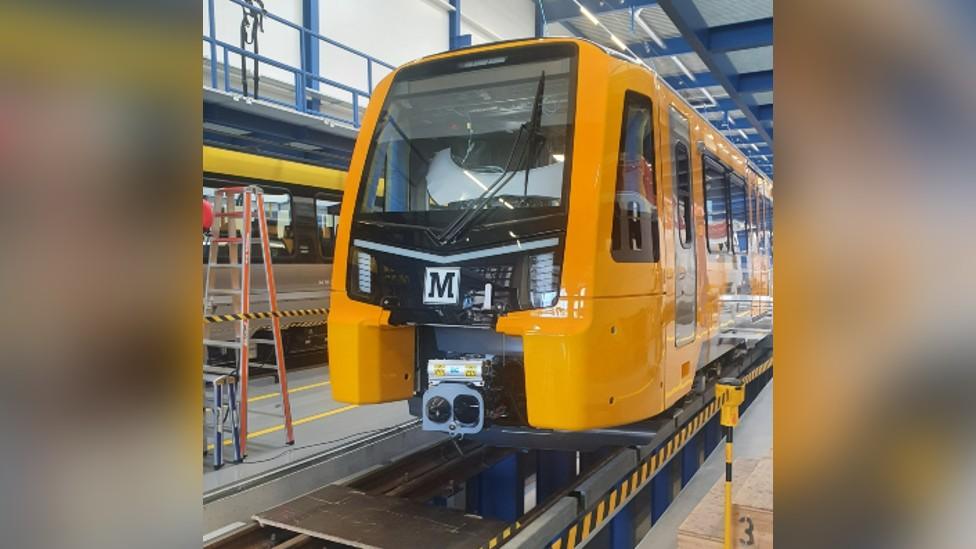
The new fleet is being built in Switzerland at a cost of £362m
Transport Secretary Grant Shapps has conceded that the UK's transport network cannot cope with intense heat, saying that the Victorian-era infrastructure "just wasn't built to withstand this type of temperature".
He added that the government must "drive up standards" as climate change makes these extreme weather events more frequent.
Nexus said that the Metro's track temperatures had been in the mid-40s and that it had experienced no problems with buckling as of Tuesday afternoon, though a speed restriction would automatically come into force if the rails hit 52C, the Local Democracy Reporting Service said.

Follow BBC North East & Cumbria on Twitter, external, Facebook, external and Instagram, external. Send your story ideas to northeastandcumbria@bbc.co.uk, external.
- Published19 July 2022
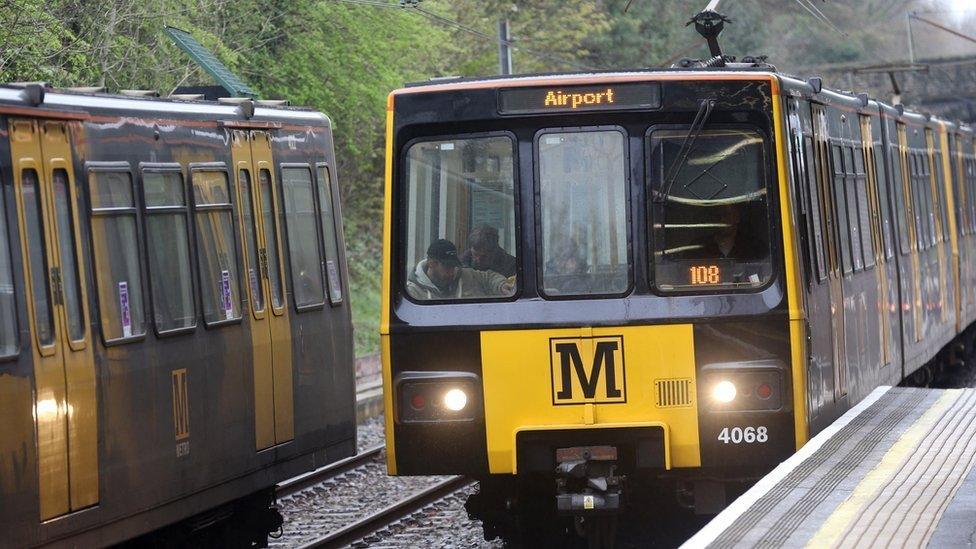
- Published19 July 2022
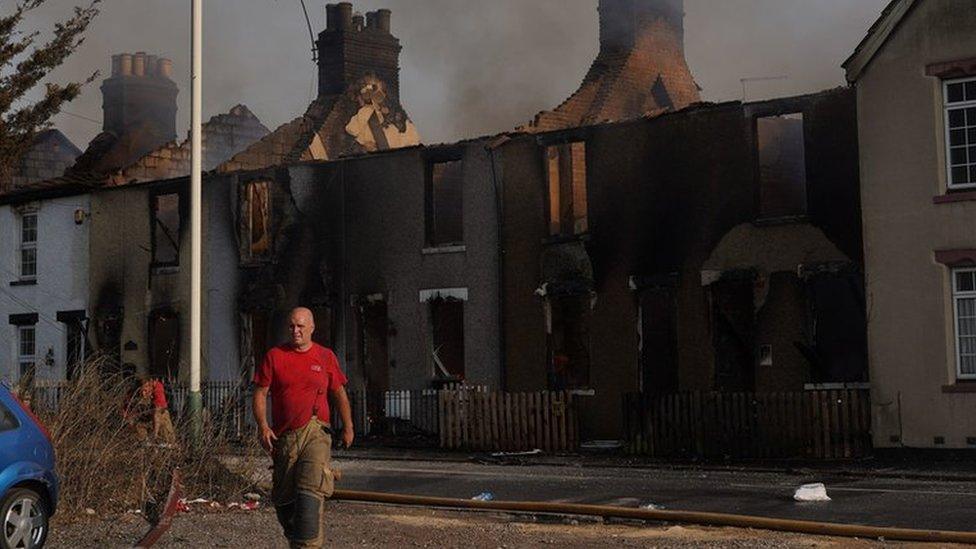
- Published18 July 2022
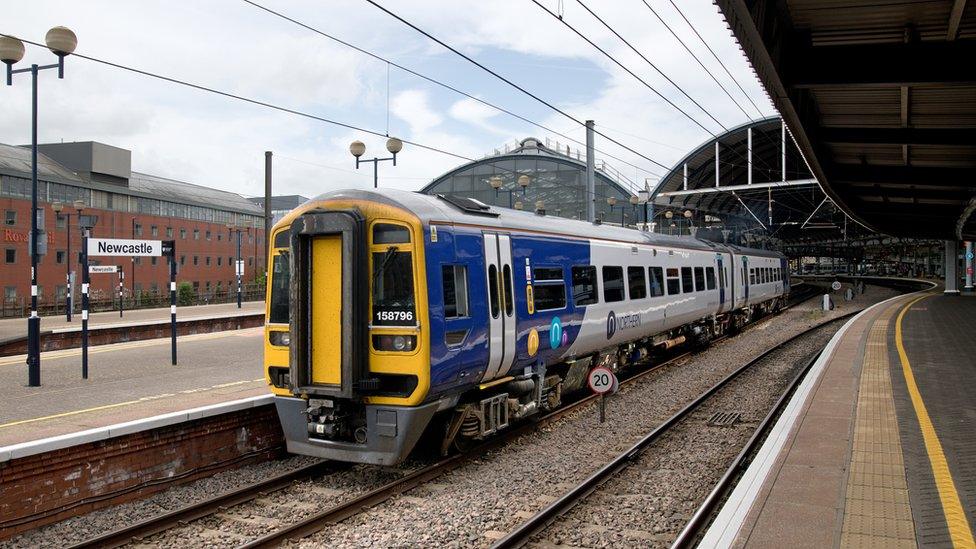
- Published16 July 2022
